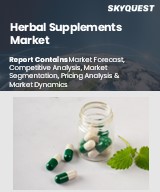
Report ID: SQMIG35I2351

Report ID:
SQMIG35I2351 |
Region:
Global |
Published Date: November, 2024
Pages:
185
|
Tables:
97 |
Figures:
71
Drivers
Growing Popularity of Organic Products
Growth of E-Commerce Models
Restraints
Lack of Education to Restrict Market Growth
Misinformation and Consumer Misconceptions
Our industry expert will work with you to provide you with customized data in a short amount of time.
REQUEST FREE CUSTOMIZATIONWant to customize this report? This report can be personalized according to your needs. Our analysts and industry experts will work directly with you to understand your requirements and provide you with customized data in a short amount of time. We offer $1000 worth of FREE customization at the time of purchase.

Report ID: SQMIG35I2351